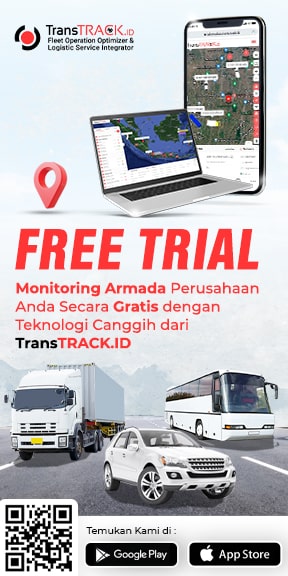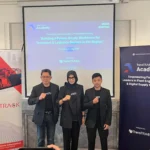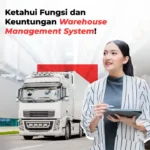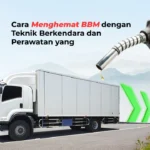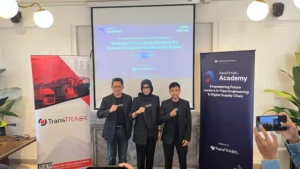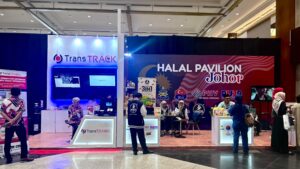The Development of Halal Logistics in Indonesia, Find Out With TransTRACK®!
Diposting pada Februari 21, 2024 oleh Nur Wachda Mihmidati

Jakarta (21/02/2024) – Halal logistics is not just about transporting halal goods or food. More than that, shipping that can be called halal logistics starts from a halal ecosystem. This time TransTRACK together with Rizki Utomo, as the General Secretariat of the National Logistic Community (NLC), held a webinar entitled “The Development of Halal Logistics in Indonesia” to explore the extent to which halal logistics has developed in Indonesia.
This shipment can be said to be halal if all conditions or processes from manufacturing, distribution, to serving and selling are in a halal ecosystem. In addition, each logistics component must also have halal certification. However, for now the process is still mixed between halal and non-halal goods/food.
“Sometimes in the process, there are still mixed processes. Whether it’s in shipping, manufacturing, or the process,” said Rizki Utomo.
In addition, the factor that causes this concept to be stuck in Indonesia is because there are still a few costs incurred for the legalization process. In addition, the certification process is lengthy. According to him, the current providers and SOPs must be clearly redrawn.
There is also the issue of Idle Capacity, which raises new questions about the capacity of places that must be separated between halal and non-halal in one truck. For example, if there is halal shipping capacity, and then you have to send non-halal, do you have to use a different truck?
Erlangga Bayu Setyawan, as TransTRACK’s Technical Business Analyst also explained that price stability will also affect halal logistics. For example, the use of pallets that must be separated between halal and non-halal products.
In Indonesia itself, this concept still needs a long process to be implemented properly. This process is still happening partially and slowly. Unlike the neighboring country, Malaysia, which has implemented this system first and has done well.
Preparation for the halal industry must be done through all contributing parties. As mentioned, providers and SOPs that must be better and more flexible, inviting the logistics community to be more literate about this concept, and the government that further refines technical guidelines, regulations, and others.
For this reason, the goal of the NLC community is not only to unite the entire logistics community in Indonesia, but they also invite the actors to immediately have halal certification themselves.
In addition, TransTRACK, which has begun to enter the halal logistics industry, will be ready to assist in managing and monitoring the tracking of halal logistics, as well as preparing a better integration system with all parties involved.
In the future, the potential of the halal logistics market will open up new opportunities in terms of employment. Because the separation between halal and non-halal goods/food requires more facilities, manufacturing, transportation, and human resources. Plus information technology will be very used in this case.
As well as the guarantee in halal products that remain halal during the journey. Halal products must be maintained and not a changing type. For this reason, it must be carried out monitoring using the TransTRACK solution which provides a monitoring process. starting from drivers who remain in a halal condition during the trip; not in a state of intoxication, by monitoring through the Driver Monitoring System feature from TransTRACK.
Postingan Terbaru
Topik :
 English
English


